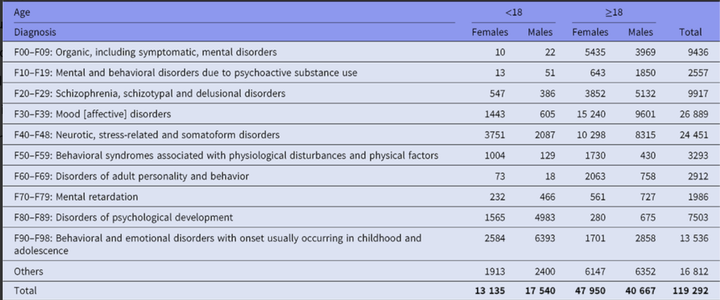The PSYchiatric clinical outcome prediction (PSYCOP) cohort: leveraging the potential of electronic health records in the treatment of mental disorders

Abstract
Background:
The quality of life and lifespan are greatly reduced among individuals with mental illness. To improve prognosis, the nascent field of precision psychiatry aims to provide personalised predictions for the course of illness and response to treatment. Unfortunately, the results of precision psychiatry studies are rarely externally validated, almost never implemented in clinical practice, and tend to focus on a few selected outcomes. To overcome these challenges, we have established the PSYchiatric Clinical Outcome Prediction (PSYCOP) cohort, which will form the basis for extensive studies in the upcoming years.
Methods: PSYCOP is a retrospective cohort study that includes all patients with at least one contact with the psychiatric services of the Central Denmark Region in the period from January 1, 2011, to October 28, 2020 (n = 119 291). All data from the electronic health records (EHR) are included, spanning diagnoses, information on treatments, clinical notes, discharge summaries, laboratory tests, etc. Based on these data, machine learning methods will be used to make prediction models for a range of clinical outcomes, such as diagnostic shifts, treatment response, medical comorbidity, and premature mortality, with an explicit focus on clinical feasibility and implementation.
Discussion: We expect that studies based on the PSYCOP cohort will advance the field of precision psychiatry through the use of state-of-the-art machine learning methods on a large and representative data set. Implementation of prediction models in clinical psychiatry will likely improve treatment and, hopefully, increase the quality of life and lifespan of those with mental illness.